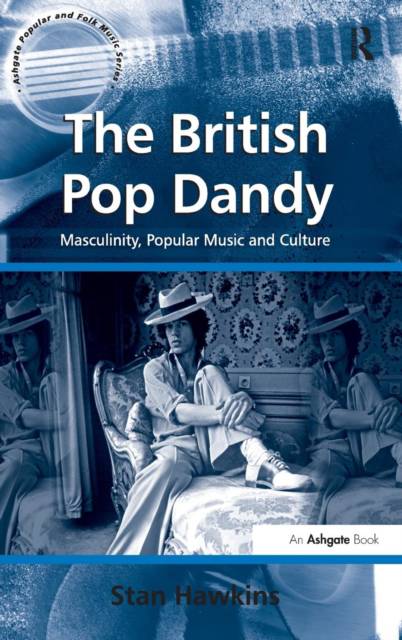
En raison d'une grêve chez bpost, votre commande pourrait être retardée. Vous avez besoin d’un livre rapidement ? Nos magasins vous accueillent à bras ouverts !
- Retrait gratuit dans votre magasin Club
- 7.000.000 titres dans notre catalogue
- Payer en toute sécurité
- Toujours un magasin près de chez vous
En raison de la grêve chez bpost, votre commande pourrait être retardée. Vous avez besoin d’un livre rapidement ? Nos magasins vous accueillent à bras ouverts !
- Retrait gratuit dans votre magasin Club
- 7.000.0000 titres dans notre catalogue
- Payer en toute sécurité
- Toujours un magasin près de chez vous
305,45 €
+ 610 points
Format
Description
Who are pop dandies? Why are stars like David Bowie, Jarvis Cocker, Pete Doherty and Robbie Williams so dandified? Taking up a wide range of British pop stars, Hawkins seeks to find out why so many have cast themselves in roles that often take style to absurd extremes. In this study, male pop artists are mapped against a cultural and historical background through a genealogy of personalities, such as Oscar Wilde, W.H. Auden, Andy Warhol, Noël Coward, Derek Jarmen, David Beckham and countless others. A critical analysis of issues and approaches to musical performance through masculinity becomes the focal point of this fascinating study. Ranging from the sixties to beyond the twentieth century, The British Pop Dandy considers the construction of the male pop icon through the spectacle of videos, live concerts and films. Why do we derive pleasure from the performing body, and how is entertainment linked to categories of gender and sexuality? The author insists that pop performances can be understood through human characteristics that relate to the particulars of dandyism, camp and glamour, and this he theorizes through the work of Charles Baudelaire. One of the political objectives of the dandy is to liberate himself through a denial of the structures that assume fixed identity. Not least, it is acts of queering in pop music that characterize entire generations of male artists in the UK. Setting out to discover what distinguishes the British pop dandy, Hawkins considers the role of music and performance in the articulation of hyperbolic display. It is argued that the recorded voice is a construction that idealizes self-representation, and absorbs the listener's attention. Particularly, camp address in singing practice is taken up in conjunction with a discussion of intimacy, which forms part of the strategy of the performer. In a range of songs and videos selected for music analysis, Hawkins points to the uniqueness of the voice as it expresses a transgressive quality that often comes across 'put-on', naive and vulnerable. To this end, vocal performativity is considered part of music's discursive disciplining through some of the greatest pop tracks, videos, concerts and films of our time. It is also argued that shifting signs of masculinity can be understood through musical process and style. While musicological in its main focus, this study is interdisciplinary and sets out to open new modes of thinking on the complex issues surrounding how masculinity, music and culture have developed in the UK.
Spécifications
Parties prenantes
- Auteur(s) :
- Editeur:
Contenu
- Nombre de pages :
- 244
- Langue:
- Anglais
- Collection :
Caractéristiques
- EAN:
- 9780754658580
- Date de parution :
- 20-04-09
- Format:
- Livre relié
- Format numérique:
- Genaaid
- Dimensions :
- 156 mm x 234 mm
- Poids :
- 521 g

Les avis
Nous publions uniquement les avis qui respectent les conditions requises. Consultez nos conditions pour les avis.






